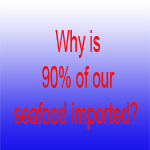
 |
 |
| August 7, 1998
Swordfish was off the menu -- but still on center stage -- as local chefs clashed publicly yesterday over a growing national effort to boycott the popular fish at restaurants and supermarkets. Kevin Meeker, owner of Philadelphia Fish & Co. restaurant, led a contingent of area restaurateurs joining the "Give Swordfish a Break" campaign, spawning something of an impromptu food fight with Jack McDavid of Jack's Firehouse and the Down Home Diner. McDavid, in his trademark overalls, and Meeker, in his chef's whites, went toe-to-toe in a debate at Meeker's Old City restaurant over serving fish and saving fish. Sixteen local chefs have agreed to stop serving all swordfish in their restaurants. At issue is the fate of North Atlantic swordfish, whose numbers have plummeted in recent years because of international overfishing. "I bought a swordfish today -- 186 pounds, from the Indian Ocean," McDavid said. "Indian Ocean? How fresh is that?" Meeker scoffed. "Fresh as anything. . . . It was flown in last night," said McDavid, baseball cap down and chin up. "This is a temporary measure to give the fish a chance to come back," Meeker said. "It's ridiculous," McDavid said. "This is allowing all the swordfish to go to other countries." The debate in Meeker's restaurant spotlighted a dispute that has spread among chefs, consumers, fishermen and environmentalists since the swordfish boycott began in January. The fish in the North Atlantic are being caught about twice as fast as they can repopulate, and the average size of swordfish caught in the region has dropped from 266 pounds to about 100 pounds, well below the 150-pound size at which female swordfish become able to reproduce. "Too many boats are chasing too few fish," said Lisa Speer, a senior policy analyst with the Natural Resources Defense Council. "The commercial catch is down by half since 1989." SeaWeb, an organization created and funded by Philadelphia-based Pew Charitable Trusts, launched the swordfish campaign eight months ago, urging consumers not to buy swordfish this year or until stricter limits on fishing are enacted. So far, SeaWeb says, more than 200 chefs nationally and three cruise lines have agreed to stop serving swordfish, and Bon Appetit magazine has quit publishing swordfish recipes. The local chefs who signed onto the campaign include Meeker, Philippe Chin (of Chanterelles), Bill Shapiro (BLT's Cobblefish), Patrice Rames (Bistro St. Tropez), John Lilly (Friday, Saturday, Sunday), Gary Flora (Omni Hotel), Laurence Kate (Upstairs at Varalli), Carlo DeMarco (Bridget Foy's), Wendy and Bill Beck (Pompano Grill), Michele Hillegas (Coventry Forge Inn), Giovanni Massaglia (La Grolla), Paul Buck (Cent'Anni), Giuseppe Sena (La Famiglia), Craig Wilson (Stephen's), and Judy Henry (Peanut Bar and Restaurant in Reading). "Eat another fish prepared the same way . . . you won't tell the difference," urged Tell Erhardt of Chef Tell's Manor House in Upper Black Eddy, Bucks County. But McDavid and other chefs maintain that the boycott is unfair to American fishermen and will not do much to help swordfish. And New Jersey fishermen and wholesalers turned out at SeaWeb's press conference yesterday to pass out swordfish recipes and denounce the boycott. "It's hurting us," said Nelson Beideman, executive director of the Blue Water Fishermen's Association of Barnegat Light, N.J. "And it's not saving one swordfish. We fought for the quotas, and now we're being put out of business." About 40 New Jersey boats are among the U.S. fleet of 200 boats fishing for swordfish in the North Atlantic and the Caribbean, with most of their sales to American buyers. By refusing to buy swordfish, Beideman said, consumers are simply permitting foreign fishermen to catch more fish. "What SeaWeb doesn't recognize is that quotas are now being set low enough to let swordfish replenish. What we need is strong compliance with the existing rules." Commercial swordfish limits are set by the International Commission for the Conservation of Atlantic Tuna, and the United States cannot set quotas unilaterally. The U.S. National Marine Fisheries Service contends that current catch levels, "with adequate compliance," should "arrest the decline in swordfish verfishing." A new international assessment is to be made next year. But boycott supporters maintain that current international quotas may arrest the decline but are not low enough to rebuild the stocks. And they want the United States to implement rules against fishing in swordfish "nurseries" off the coasts of Florida and South Carolina to give juvenile fish a chance to mature. About 50 percent of the world's total swordfish catch comes from the Atlantic Ocean, and American fishermen catch about 29 percent of the North Atlantic total, second only to Spain. Pacific Ocean and Indian Ocean swordfish numbers remain healthy, and the environmentalists' boycott does not apply to fish from those waters. They say concerned diners should ask the source of swordfish before buying it. |